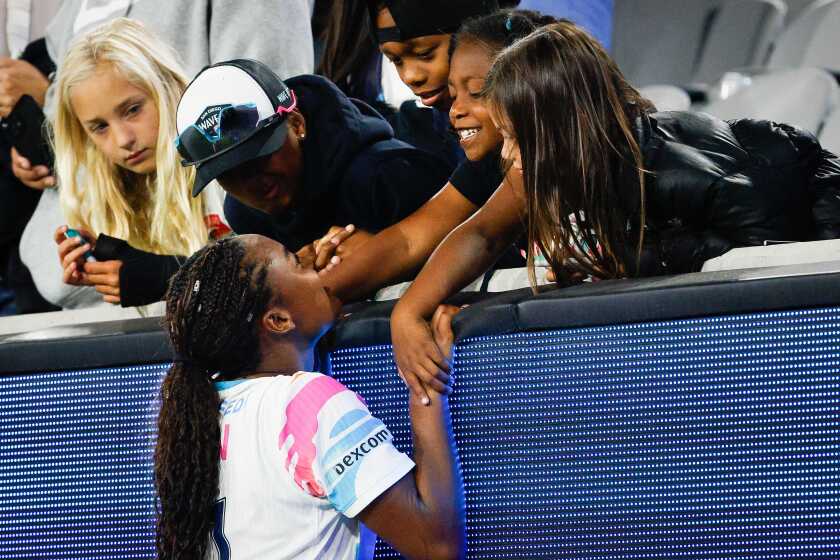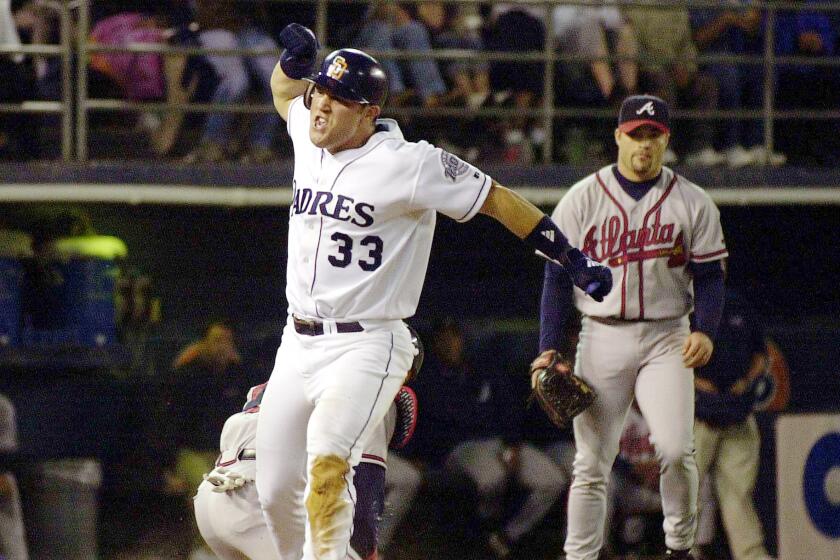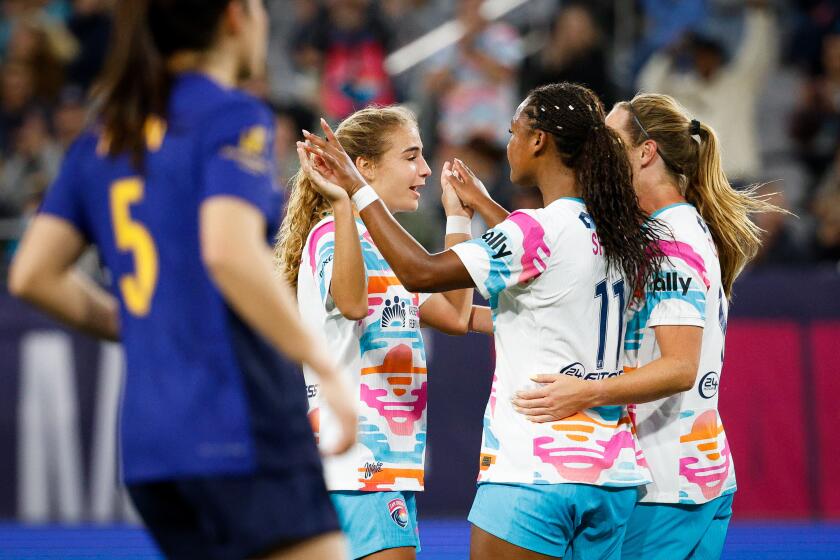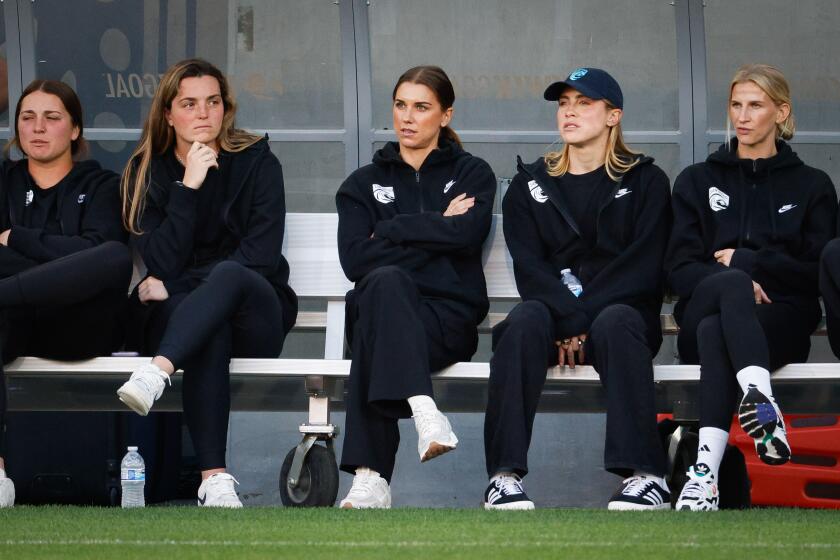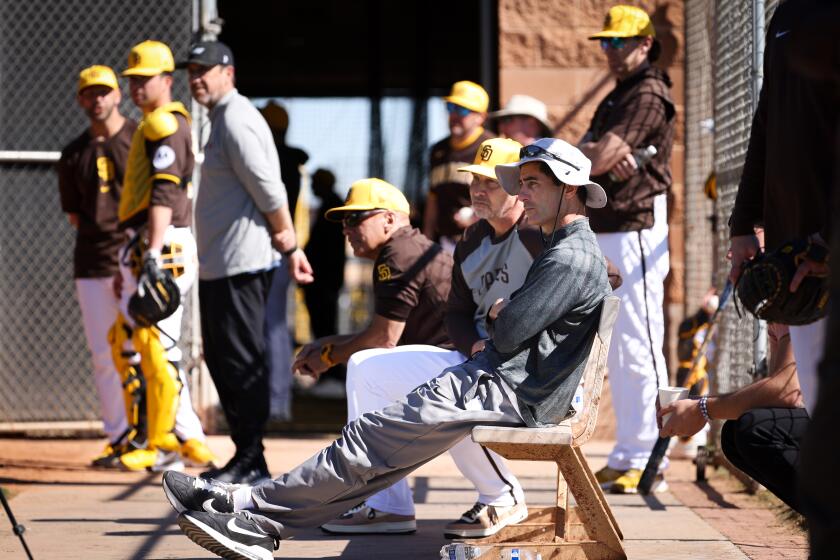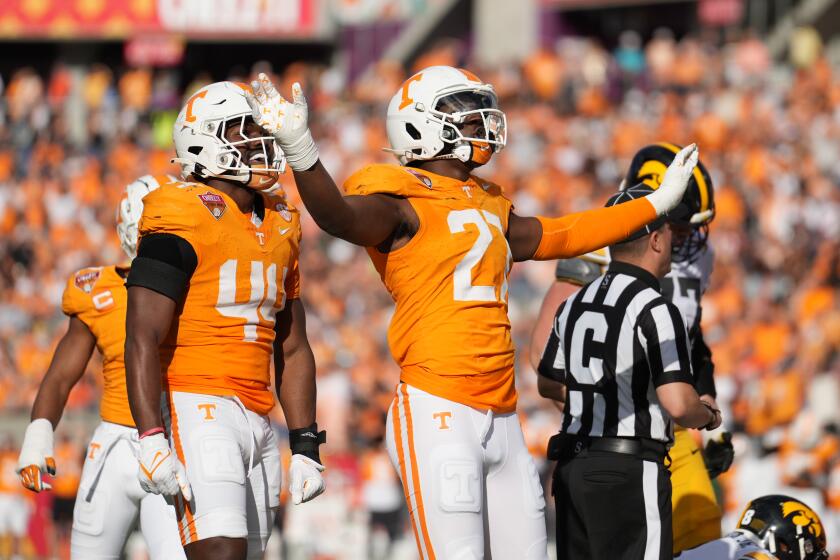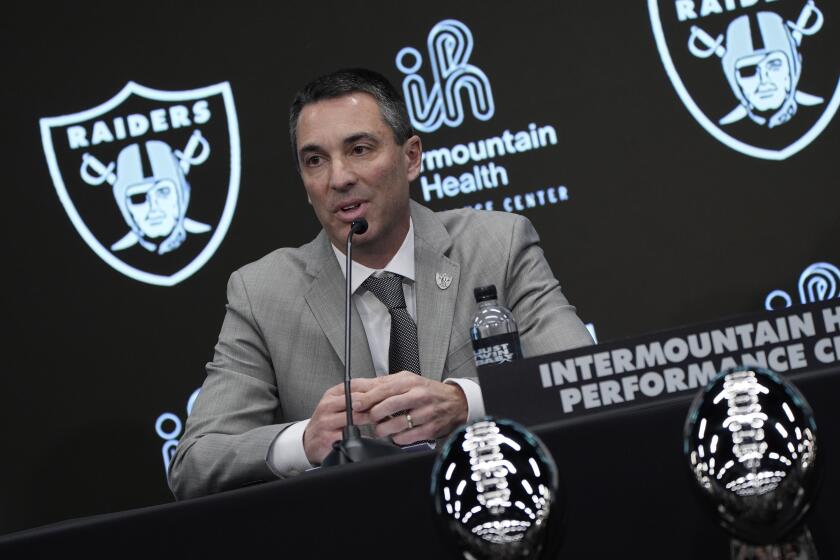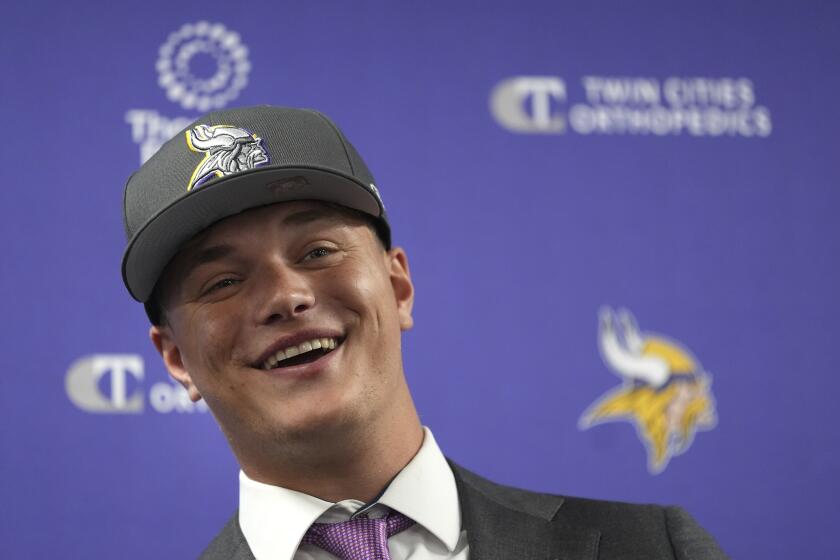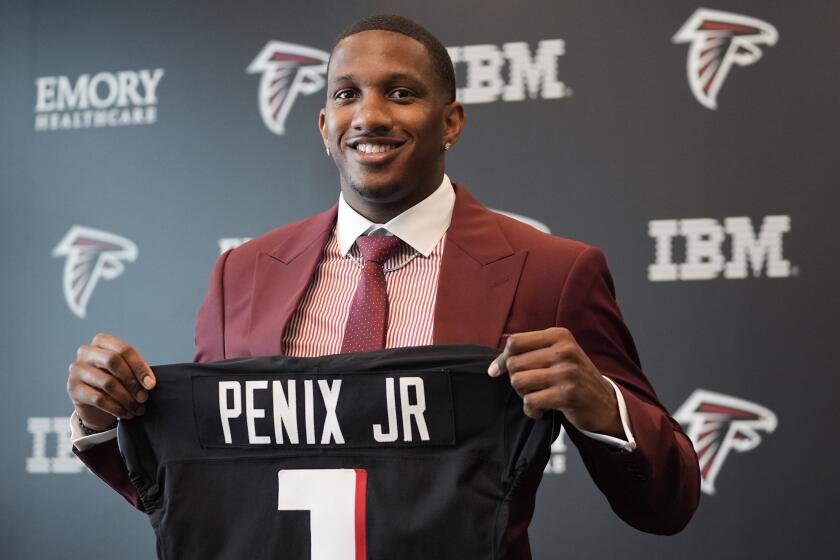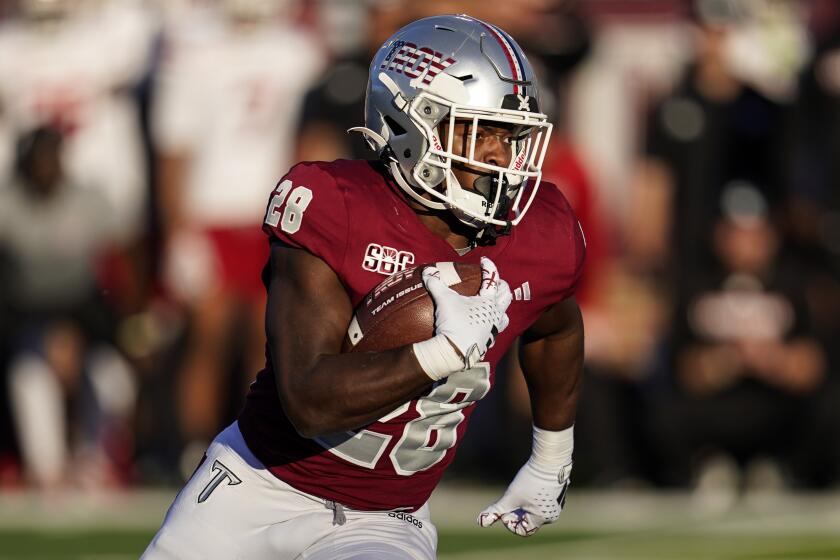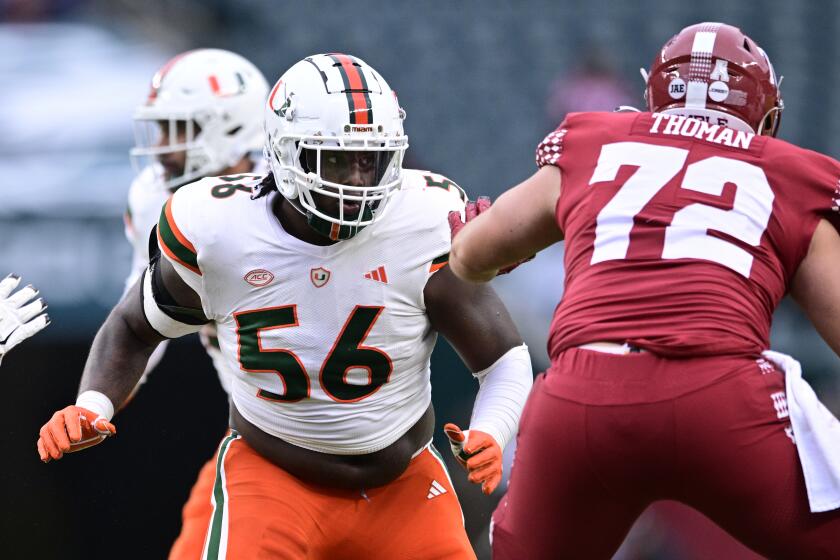Tom Krasovic: As Chargers’ GM, A.J. Smith brought club achingly close to a Super Bowl

A.J. Smith, the architect of uber-talented Chargers teams, died Sunday at age 75 following long battle with prostate cancer
A.J. Smith presided over a tantalizing era of Chargers football that engrossed, thrilled and frustrated many thousands of San Diegans.
If any of the 10 seasons under Smith had produced the Super Bowl run that many football experts projected of the Chargers in several of those years, who knows?
The Chargers might’ve commanded enough public money to build an NFL stadium. They would still be in San Diego.
It didn’t turn out as Smith and many others with the club expected it to turn out, and Dean Spanos and his three siblings ultimately chose to accept the NFL’s offer to join the Los Angeles Rams in a privately financed, $5.5-billion stadium in Inglewood.
Smith’s death Sunday at age 75 following a seven-year battle with prostate cancer prompts today’s trip back in time. It was a complicated, much-debated decade of San Diego sports history spanning 2003 through 2012.
Smith wanted that Super Bowl victory. Did he ever.
He’d come painfully close with the Buffalo Bills as a scouting executive in the four consecutive years they reached the big game, only to lose all four.
On a summer day six years into his San Diego run as the team’s general manager, Smith relaxed ahead of a 2009 season that would lift and crush hopes once again.
He spoke at length of his hunger to finally reach a Super Bowl and win it.
Our conversation was off the record, where it will remain. But the white-haired GM, gruff, animated and a surprisingly funny and theatrical storyteller, winced when recollecting the near-misses.
Ordinarily, the inability to advance to a Super Bowl wouldn’t be prominent in the legacy of an NFL team’s general manager.
Smith’s legacy in San Diego warrants an exception.
For all of the electricity they spun off, the Chargers exited four playoffs in the first or second round and reached just one AFC title game, losing at New England.
More was expected, given their prolific offenses that scored more points over the 10 years than any NFL team except the Patriots of Tom Brady and Bill Belichick.
How does a franchise win AFC West titles from 2006-09, on top of a wild-card berth earned in 2004, lead the NFL in both offensive and defensive yardage in 2010, yet not reach the Super Bowl? That can’t happen. Oh, but it did.
The Chargers posted a .594 win rate in those 10 years under Smith. The only five NFL teams in that span to win more often were the Patriots (.788), the Colts (.700), the Steelers (.644), the Packers (.613) and the Ravens (.613).
Unlike the Chargers, every one of those five clubs reached a Super Bowl. Of course they did. The Patriots and Steelers each advanced to four, winning two apiece. The Ravens and Packers each won their only Super Bowl appearance.
So why were the Chargers unable to break through?
Outside from their own failings, which will be addressed below, notice the AFC’s strength. Five of the NFL’s top six teams of the Smith Era were AFC clubs. That was a problem for the Chargers. Take a look at the QBs with those five teams. Two were no-doubt Hall of Famers — Brady and Peyton Manning. Give me the Steelers’ Ben Roethlisberger over Philip Rivers, due to his escape skills. Aaron Rodgers was a four-time league MVP who led the NFC’s Packers to three consecutive playoff wins on the road and the trophy after Mike McCarthy wisely ran the entire game plan through him.
The 2012 Ravens went the distance in Smith’s final season, catching fire down the stretch and maintaining hot form into January — something the Chargers never did. Rubbing salt, Baltimore Super Bowl run began in Mission Valley with the infamous Ray “Hey Diddle Diddle” Rice conversion on fourth-and-29.
The Chargers did a lot of it to themselves, year after year.
The CliffsNotes version of their failings follows.
Smith and Marty Schottenheimer, the coach he inherited, fell into a dysfunctional relationship that Dean Spanos failed to solve. Smith’s dubious bet on Norv Turner as Schottenheimer’s replacement didn’t pan out. Smith cooled off in the draft following a hot start. The Chargers did far too much Chargering, losing as playoff favorites at home against the Jets, the Patriots and the Jets once again. Rivers became a turnover machine late in Smith’s tenure, in part because Smith failed to build him a sturdy offensive line.
Yes, it was a bit of bad luck that the only Chargers team to reach the AFC title game under Smith suffered a brutal injury barrage going into that contest following Turner’s first season.
But good luck was Smith’s friend in his first year on the job. He inherited a pair of Hall of Famers in LaDainian Tomlinson and Drew Brees from John Butler, the GM whose death from lung cancer at age 56 moved Smith atop the football operation. Smith’s first Bolts team set up the franchise for a huge talent haul by losing enough games to give the rookie GM the first pick overall, at the same time a great QB class was entering the NFL draft.
Exploiting those favorable circumstances, Smith came away with Rivers, edge rusher Shawne Merriman and kicker Nate Kaeding after drafting and trading Eli Manning.
He also welcome a future great in Antonio Gates, a street free agent he signed on the advice of one of Schottenheimer’s coaches, Tim Brewster.
Smith drafted Darren Sproles, Vincent Jackson, Shaun Phillips, Nick Hardwick, Michael Turner and Eric Weddle, among others, providing an influx of talent that should’ve led to more than just the one AFC title game.
The Smith Era proved good overall and very good for awhile. In the end, it wasn’t good enough.

